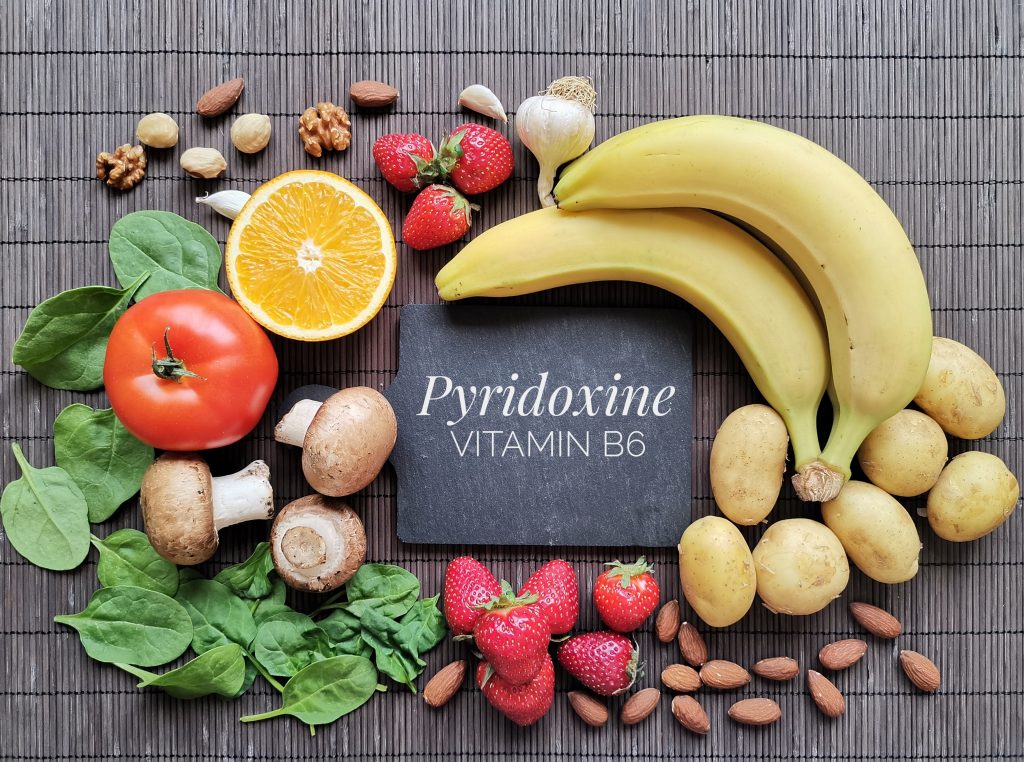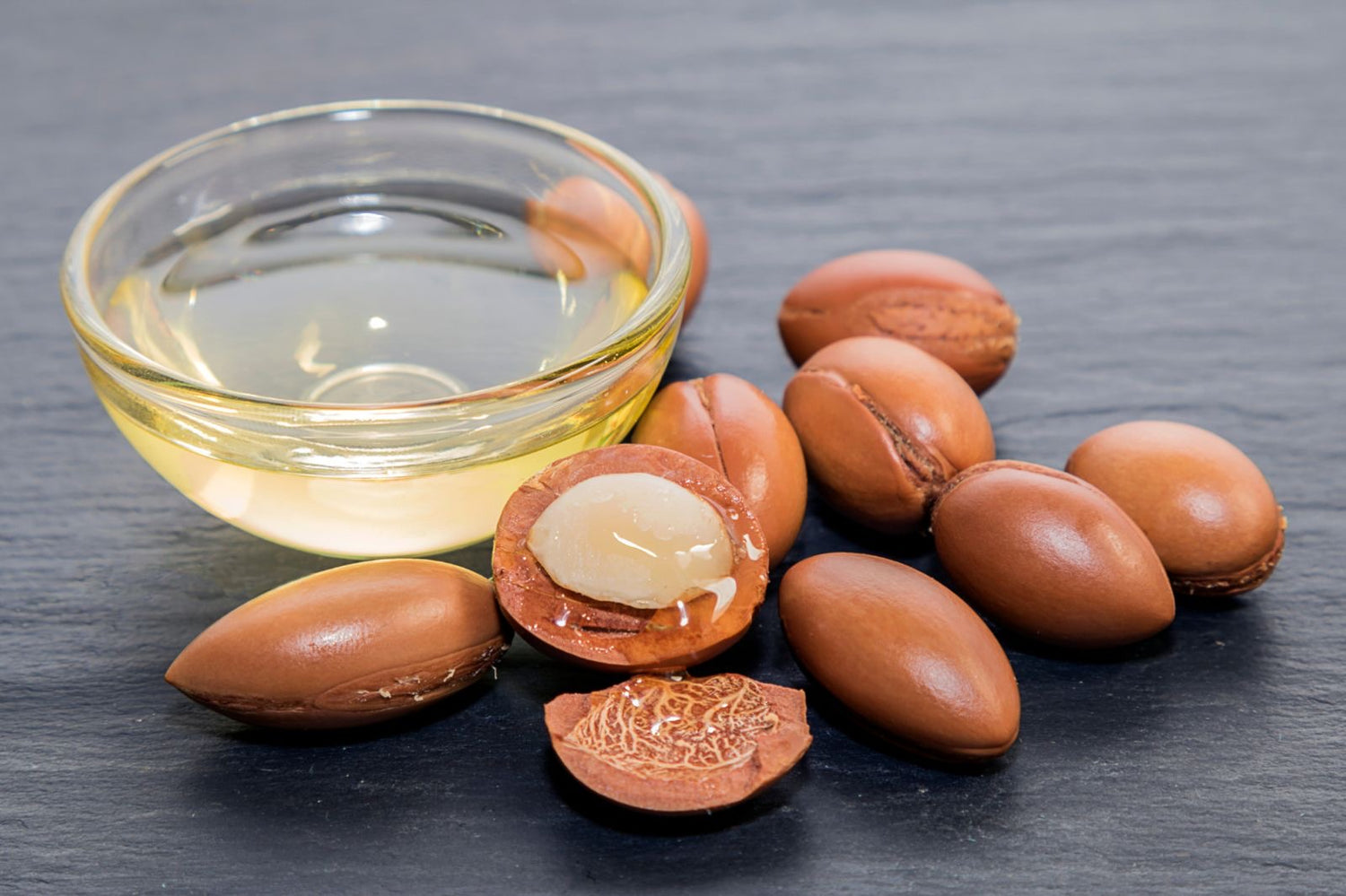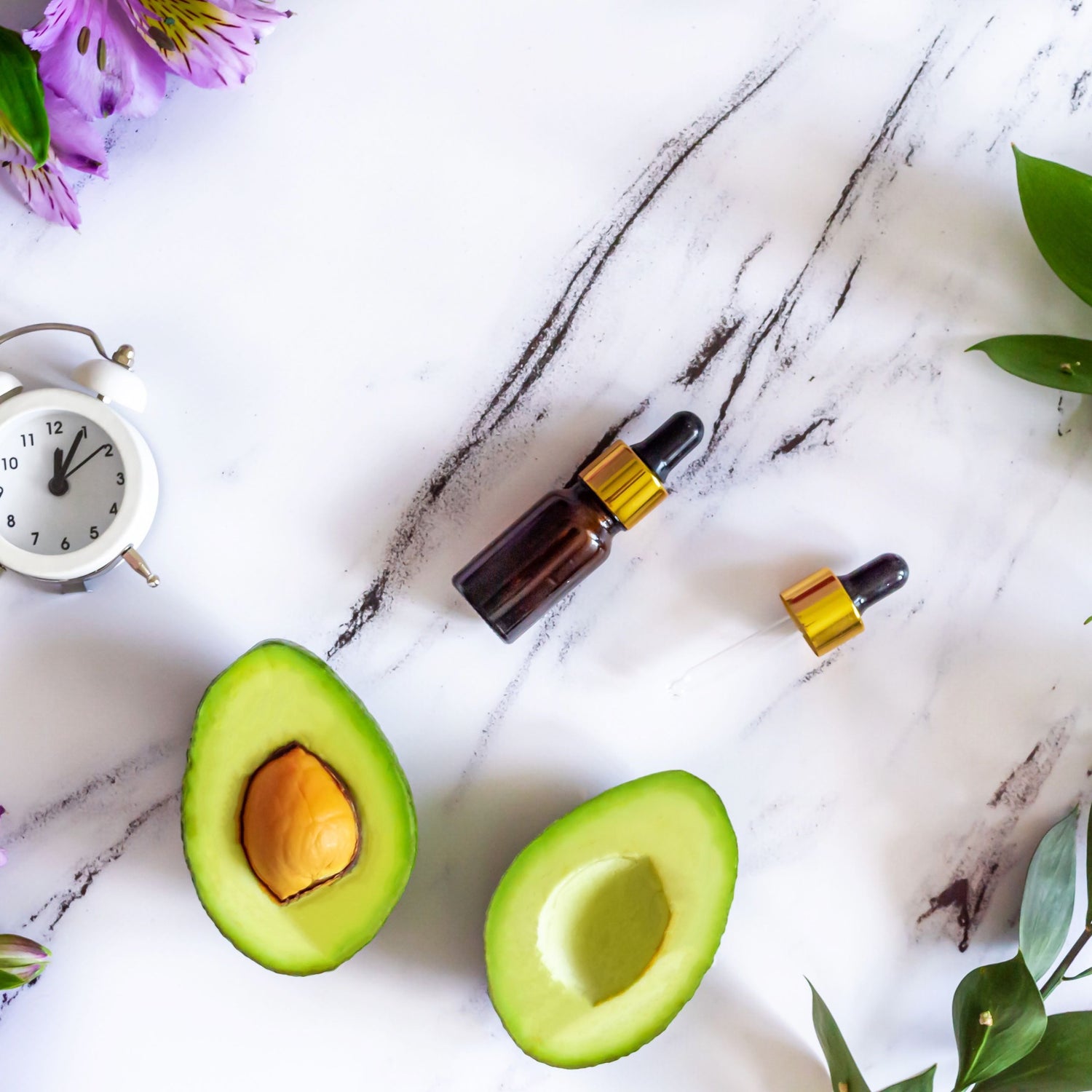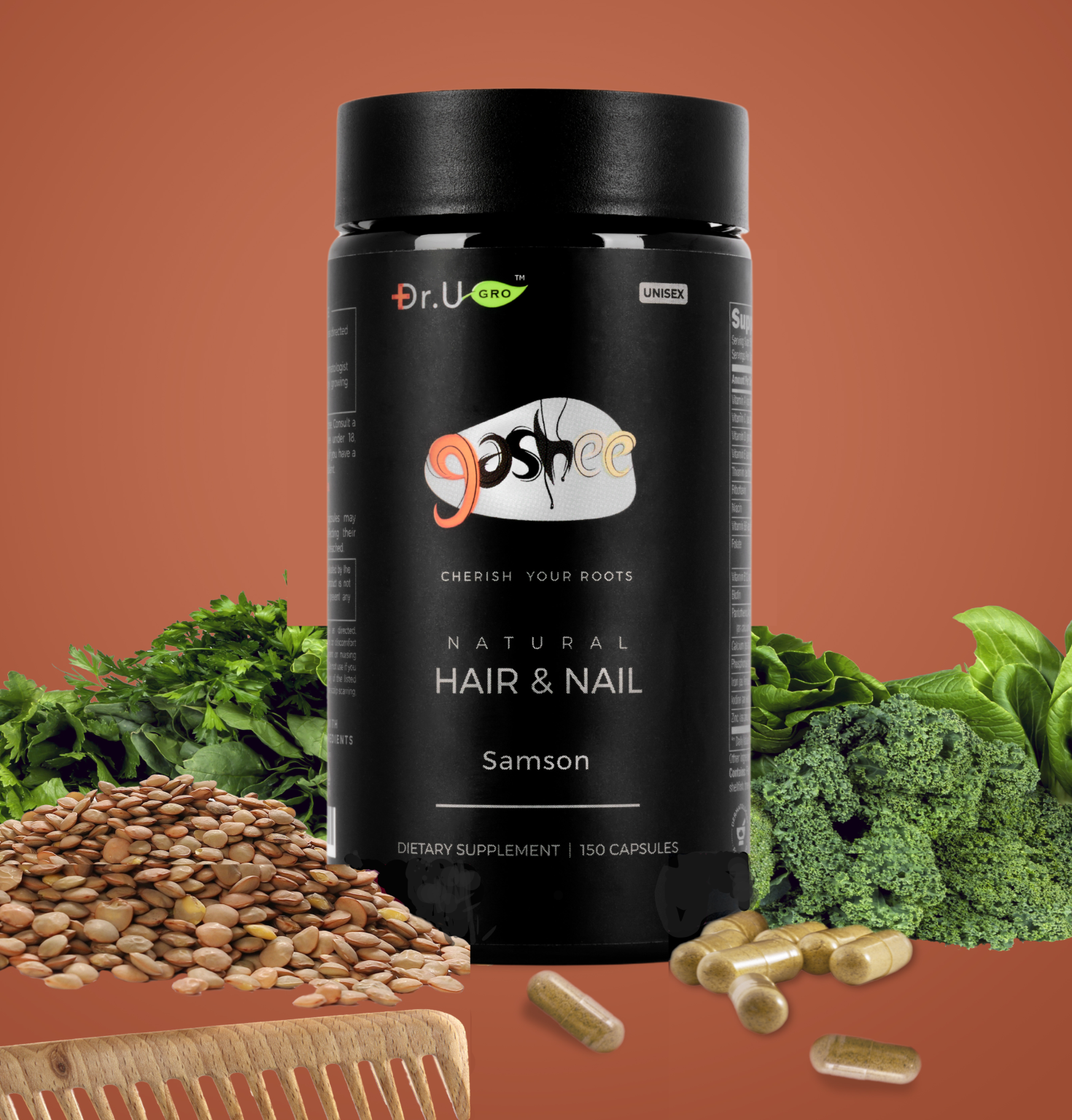What is Vitamin B6?
Vitamin B6 (pyridoxine) is a water-soluble nutrient that is part of the vitamin B group. It is also known as pyridoxal. Vitamin B6 helps the body convert food into energy and fight infections. It also plays a key role in the key metabolic process and helps to maintain a healthy nervous system. But scientific studies are now shedding more light on the benefits of vitamin B6 for hair loss.

Foods rich in Vitamin B include spinach, kale, potatoes, and cereals.
Researchers Explain Vitamin B6 For Hair Growth
Vitamin B6 plays a major role in cell metabolism, helping to incorporate an amino acid known as cystine into the hair-building process. Researchers studied the effects of vitamin B6 on different forms of hair loss in human and animal subjects. They found that vitamin B6 could either prevent alopecia or help in the process of developing new hair shafts.

Vitamin B6 for Hair Loss Reduction in Diffuse Alopecia
A team of researchers was interested in seeing the effects of vitamin B6 and calcium pantothenate on hair growth in females who suffered from genetic thinning, also known as diffuse alopecia (1). They performed a study on 46 female subjects, ranging from teenagers to women in their thirties. The participants each took an oral dosage of calcium pantothenate (100mg) twice a day for 4-5 months. The women also received daily injections of vitamin B6 for 20-30 days, which resumed after six months. Researchers evaluated evidence of hair growth using both trichological and clinical methods. They found that vitamin B6 reduces hair loss in follicles in their resting (telogen) phase.
Vitamin B6 For Hair Loss Induced by Chemotherapy

Another group of researchers wanted to find new ways of preventing hair loss from chemotherapy. Losing hair is usually an inevitable part of cancer treatment using this approach, leaving patients often feeling devastated. Discovering solutions to help keep one’s hair would make an enormous difference in the lives of patients. Researchers looked into the possibility of vitamin B6 in preventing alopecia resulting from a chemotherapy drug known as Doxorubicin (2). They experimented on C57BL/6 mice who had been treated with the medication to induce alopecia. The mice were given daily oral dosages of L-cystine and vitamin B6. Cystine is an amino acid that contains sulfur, making it an important component of hair shafts. Vitamin B6 helps the hair follicles utilize cystine as it builds new hair.
Vitamin B6 For Hair Loss Caused by Environmental Smoke
Cigarette smoke has been known to cause hair loss in mice. Researchers were curious to find out if combining L-cystine and vitamin B6 could actually reduce the progression of alopecia induced by environmental cigarette smoke (ECS) (3). They again studied C57BL/6 mice. These animal subjects were exposed to cigarette smoke for six months. The researchers carefully observed them for signs of alopecia and cellular death (apoptosis) of hair bulb cells. During this time, a subset of the mice received diets supplemented with three different L-cystine and vitamin B6 doses. The researchers found that the mice treated with the dual combination of supplements exhibited a reduced progression of alopecia. However, the extent of this phenomenon depended on the dosage.
The Metabolism of Vitamin B6 For Hair Growth In Mice and Humans

Vitamin B6 plays an indirect, helping role in the formation of new hair. Researchers were interested in looking into this further to gain more information about this mechanism. They decided to study the metabolism of vitamin B6 at different phases of the hair production cycle in the skin of both humans and mice (4). This team of scientists decided to observe the levels of an enzyme called Pyridoxine 5’ - phosphate oxidase, which catalyzes multiple reactions during the metabolism of vitamin B6 as new hair is being produced. Researchers found that this enzyme increased in mice as hair follicles progressed from the telogen (resting) phase to the anagen (active growth) phase. This supports the concept that the metabolism of vitamin B6 is a significant process in forming brand new hair shafts.
Should We Take More Vitamin B6 for Hair Growth?
So far, research is finding new forms of support for the role of vitamin B6 in either optimizing hair growth or reducing the rate of hair loss. However, at this point, scientists only have a very general picture, especially with the use of animal models. Also, the experiments discussed above were conducted on different forms of hair loss. The findings of these studies have not uncovered the specifics of how to take vitamin B6 supplements to improve hair growth in men and women suffering from androgenic hair loss. Nonetheless, vitamin B6 is an important part of our general health. It plays a role in balancing our blood sugar, our muscle movements, our memory, how we expend energy, our blood flow, our hemoglobin production, how we produce energy from food, and the creation of antibodies. We should focus on a balanced, healthy intake of vitamin B6 to optimize our overall well-being, not just for hair growth.
Different Ways to Take Vitamin B6
Vitamin B6 can be consumed in numerous ways, including food sources. Poultry, fish, spinach, kale, potatoes, bananas, and fortified cereals are great sources containing this vitamin. Other ways to consume vitamin B are through supplements and topical products. A 2021 study written by Dr. Sanusi Umar, a board-certified dermatologist and hair transplant specialist, explained the effects of natural ingredients on hair loss. The study presented three hair products containing vitamin B6 and other phytoactive ingredients to test their effectiveness. Dr. Umar’s research discovered that combining the ingredients and the cold-formulation technique showed a positive response to hair loss and balding patterns. All patients who participated in the study had drastic improvements in hair growth.
Vitamin B6 Side Effects and Precautions
It is safe to consume vitamin B6 through food, even in excessive amounts. However, when taking supplements, there is a recommended dose to ensure avoiding negative side effects. Some side effects of excessive consumption through supplements include:
- Nausea
- Heartburn
- Photosensitivity
- Lack of muscle control
It is safe for pregnant women and breastfeeding mothers to take this vitamin when taken in the appropriate dose provided by their doctors. Although vitamin B6 can be used to control morning sickness at times, large consumptions are not recommended. Additionally, those with arteries or patients recovering from this condition should not use vitamin B6 due to the possibility of worsening the condition.
Safety Profile
The Environmental Working Group is an American activist group that researches toxic materials in beauty and food products. The organization gave vitamin B6 (also known as pyridoxine) a 1 score on its ten-point safety hazard scale, indicating that the compound shows little to no concerns in safety.
VIDEO: Gashee User Shares Hair Growth Experience
After menopause, Laura experienced hair loss, which also led to thinning and balding. After failed attempts of trying to redeem her hair with other medications, she discovered Dr.UGro Gashee's all-natural hair products containing vitamin B6. Just after 2 months of using Gashee, she began seeing significant changes in her hair's thickness and overall health. Watch the video below to learn more about her experience.
Frequently Asked Questions - Vitamin B6 for Hair Loss
What are some common food sources of vitamin B6? If I eat more of these foods, will it help with my hair loss?
Foods rich in vitamin B6 include chickpeas, watermelon, potatoes, spinach, kale, whole grains, and cereals. Consuming these types of foods in greater amounts will not necessarily improve the signs of your hair loss. Instead, it would be best if you strived to eat a well-rounded diet to optimize your physiology. A doctor should examine hair loss to determine the specific causes of your particular situation. Genetics usually plays a central role. But secondary factors can also affect how fast you lose hair. These may include inflammation, sun exposure, and side effects of prescription medications.
Is Vitamin B good for the hair?
Vitamin B6 helps your hair follicles incorporate important nutrients like cystine into the hair-building processes. So, yes, it is good for supporting the mechanisms in the follicles that produce new strands. But the bigger picture of hair health involves a wide range of variables. It will be important to look at the proportion of these factors relative to each other in your particular case (e.g., whether genetics plays a bigger role than stress, dietary changes, or vice-versa).
What happens if I take too much Vitamin B6 for hair loss?
Clinical and Experimental Dermatology mentions that excessive supplementation can lead to more hair loss. Overdosing on vitamin B6 can lead to problems with your nervous system or problems with balance, and even a loss of sensation in your legs.
References
- Brzesinska-Wcislo L. Evaluation of vitamin B6 and calcium pantothenate effectiveness on hair growth from clinical and trichographic aspects of diffuse alopecia in women. [in Polish]. Wiad Lek 2001; 54(1):11-8.
- D’Agostini F, Fiallo P, Ghio M, et al. Chemoprevention of doxorubicin-induced alopecia in mice by dietary administration of L-cystine and vitamin B6. Arch Dermatol Res 2013;305(14):25-34.
- D’Agostini F, Fiallo P, Pennisi TM, et al. Chemoprevention of smoke-induced alopecia in mice by oral administration of L-cystine and vitamin B6. J Dermatol Sci 2007;46(3):189-98.
- Coburn SP, Slominski A, Mahuren JD, et al. Cutaneous metabolism of vitamin B-6. J Invest Dermatol 2003;120(2):292-300.
- Sanusi Umar, Marissa J. Carter, "A Multimodal Hair-Loss Treatment Strategy Using a New Topical Phytoactive Formulation: A Report of Five Cases," Case Reports in Dermatological Medicine, vol. 2021, Article ID 6659943, 12 pages.





